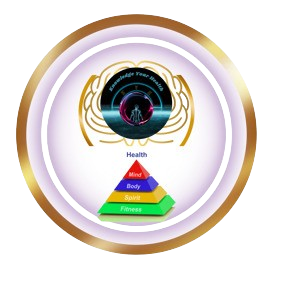Silicon: The Overlooked Element for Bone Health and Connective Tissue
Silicon may not be as famous as other minerals, but it’s a crucial element that plays a vital role in maintaining healthy bones, skin, hair, and nails. While it’s most commonly associated with its potential benefits for skin and hair health, silicon also supports bone density and overall connective tissue integrity. Let’s delve into why silicon is important, how much we need, and where to find it in our food.
Why is Silicon Important?
Silicon acts as a supportive architect, fortifying various structures in our body:
1. Bone Health: Silicon is essential for the formation and maintenance of healthy bones by promoting the synthesis of collagen and facilitating bone mineralization, supporting bone density and overall skeletal health.
2. Connective Tissue Support: Silicon plays a crucial role in the synthesis and maintenance of connective tissues like cartilage, tendons, and ligaments, supporting joint health and flexibility.
3. Skin, Hair, and Nail Health: Silicon is involved in the formation of collagen and elastin, two proteins that contribute to the health, elasticity, and youthful appearance of our skin, hair, and nails.
4. Cardiovascular Health: Some research suggests that silicon may help support cardiovascular health by promoting arterial flexibility and reducing the risk of atherosclerosis, although more studies are needed in this area.
Healing Dosages of Silicon
The recommended daily intake of silicon varies depending on age, gender, and individual health status. Here’s a general guideline:
- Infants (0-6 months): 0.2 mg (milligrams)
- Infants (7-12 months): 0.4 mg
- Children (1-3 years): 5 mg
- Children (4-8 years): 7 mg
- Children (9-13 years): 12 mg
- Teens (14-18 years): 25 mg for males, 20 mg for females
- Adults (19 years and older): 30 mg for males, 20 mg for females
- Pregnant Women: 30 mg
- Breastfeeding Women: 35 mg
It’s important to note that excessive silicon intake is generally considered safe, as it’s poorly absorbed and excess amounts are excreted in the urine. However, more research is needed to establish optimal intake levels and potential long-term effects of silicon supplementation.
Food Sources of Silicon
Silicon is found in a variety of foods, both from plant and mineral sources. Here are some silicon-rich foods to include in your diet:
Whole Grains: Oats, barley, and brown rice
Nuts and Seeds: Almonds, sunflower seeds, and flaxseeds
Legumes: Chickpeas, lentils, and green beans
Vegetables: Spinach, broccoli, and asparagus
Fruits: Apples, oranges, and grapes
Mineral Water: Some mineral waters naturally contain silicon
Conclusion
Silicon is an essential element that plays a crucial role in bone health, connective tissue support, and skin, hair, and nail health. By incorporating silicon-rich foods into your diet, following the recommended daily intake guidelines, and maintaining a balanced diet and lifestyle, you can ensure adequate silicon intake and support overall health and well-being. However, if you suspect you have a silicon deficiency or are considering silicon supplements, it’s essential to consult with a healthcare professional or registered dietitian to determine the appropriate silicon intake tailored to your individual needs and preferences.
